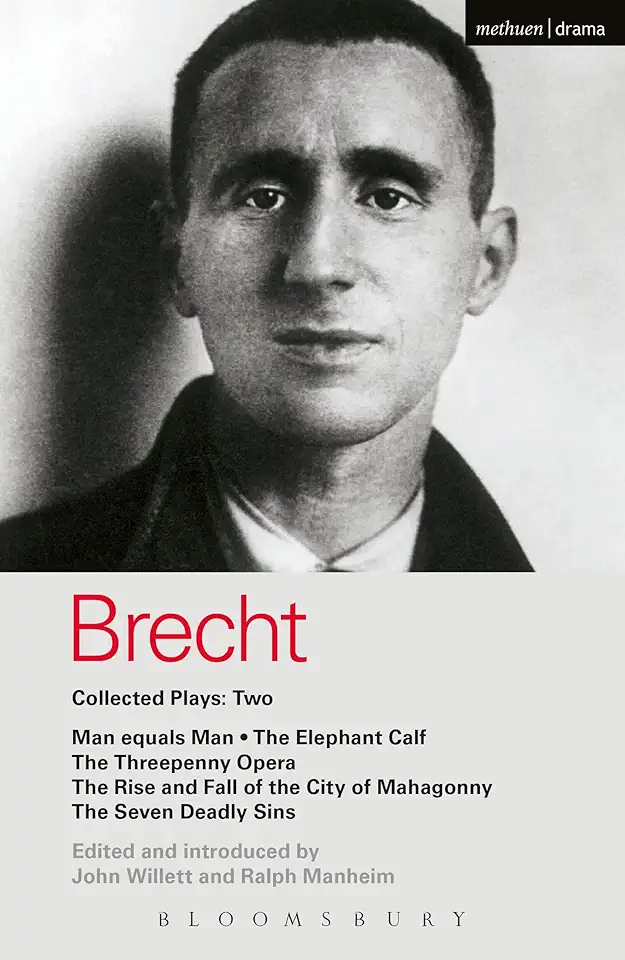
The Theatre of Brecht - John Willett
The Theatre of Brecht: A Comprehensive Exploration of the Revolutionary German Playwright
Introduction: Unveiling the Genius of Bertolt Brecht
Bertolt Brecht, the German playwright, poet, and theatre director, stands as a towering figure in the world of modern drama. His groundbreaking techniques and innovative approach to storytelling have left an indelible mark on the theatrical landscape. In his seminal work, "The Theatre of Brecht," John Willett delves deep into the life, works, and revolutionary ideas of this theatrical visionary, offering readers a comprehensive understanding of Brecht's profound impact on the art of theatre.
Brecht's Early Life and Influences
Willett begins by tracing Brecht's early life, providing insights into the formative experiences that shaped his artistic sensibilities. Born in Augsburg, Germany, in 1898, Brecht was exposed to the world of theatre from an early age. His father, a factory manager, instilled in him a strong sense of social justice, while his mother, a talented singer, nurtured his love for the arts. These influences laid the foundation for Brecht's later development as a playwright committed to social change.
The Birth of Epic Theatre: Breaking Conventional Boundaries
At the heart of Brecht's theatrical revolution lies the concept of "epic theatre." Willett meticulously dissects this innovative approach, explaining how Brecht sought to challenge traditional notions of drama by creating a theatre that was both entertaining and thought-provoking. Epic theatre aimed to engage the audience's intellect, encouraging them to critically examine the social and political issues presented on stage.
Brecht's Techniques: Verfremdungseffekt and Gestus
Willett provides a detailed analysis of Brecht's groundbreaking techniques, such as the "Verfremdungseffekt" (alienation effect) and "Gestus." The alienation effect aimed to distance the audience from the characters and events on stage, preventing them from becoming emotionally involved and allowing them to maintain a critical perspective. Gestus, on the other hand, involved the use of physical gestures and movements to convey complex emotions and ideas, adding depth and nuance to the performances.
Brecht's Major Works: A Showcase of Theatrical Brilliance
Willett dedicates a significant portion of the book to examining Brecht's major works, including "The Threepenny Opera," "Mother Courage and Her Children," and "The Caucasian Chalk Circle." He provides insightful interpretations of these plays, highlighting their political undertones, social commentary, and innovative theatrical devices. Willett's analysis reveals Brecht's mastery of storytelling and his ability to blend entertainment with social critique.
Brecht's Collaborators: Shaping a Theatrical Legacy
No exploration of Brecht's theatre would be complete without acknowledging his influential collaborators. Willett sheds light on Brecht's close working relationships with directors, composers, and actors, such as Erwin Piscator, Kurt Weill, and Helene Weigel. These collaborations were instrumental in bringing Brecht's vision to life and shaping his enduring theatrical legacy.
Brecht's Impact and Enduring Influence
Willett concludes by assessing Brecht's profound impact on theatre and the arts. He traces Brecht's influence on subsequent generations of playwrights, directors, and theatre practitioners, demonstrating how his ideas continue to resonate and inspire. Willett argues that Brecht's theatre remains relevant and vital, offering a powerful tool for social critique and artistic expression.
Conclusion: A Must-Read for Theatre Enthusiasts and Scholars
"The Theatre of Brecht" stands as an essential resource for anyone interested in modern drama, theatre history, and the works of Bertolt Brecht. John Willett's comprehensive and engaging exploration of Brecht's life, techniques, and major works provides a deep understanding of this theatrical revolutionary. Whether you are a theatre enthusiast, a scholar, or simply someone curious about the power of theatre to effect social change, this book is a must-read that will leave you inspired and eager to delve deeper into the world of Bertolt Brecht.
Enjoyed the summary? Discover all the details and take your reading to the next level — [click here to view the book on Amazon!]